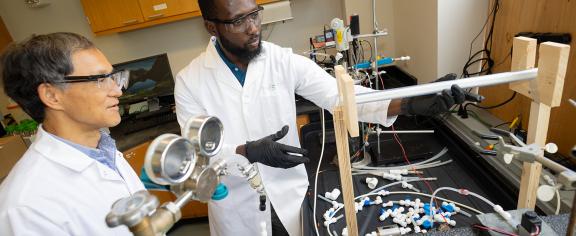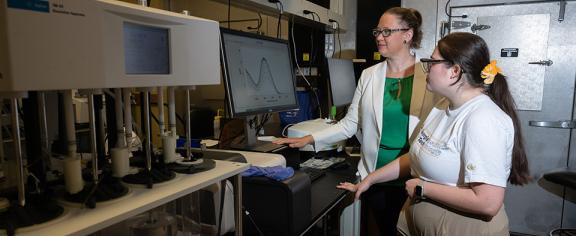2025-07-18
A Georgia Tech study warns that rising lunar traffic could lead to costly collision avoidance maneuvers, urging better coordination to manage growing risks in cislunar space.
2025-07-15
The National Science Foundation has awarded Georgia Tech and its partners $20 million to build a powerful new supercomputer that will use artificial intelligence to accelerate scientific breakthroughs.
2025-07-15
Before merging, both black holes were spinning exceptionally fast, and their masses fell into a range that should be very rare — or impossible.
2025-07-15
The National Science Foundation has awarded Georgia Tech and its partners $20 million to build a powerful new supercomputer that will use artificial intelligence to accelerate scientific breakthroughs.
2025-07-10
A new study shows how the material made from leaves and branches that collect on forest floors can be mixed with local soil to filter out road grime before it reaches waterways.
2025-07-08
The dashboards highlight significant achievements in joint research, funding, and innovation, demonstrating each partnership’s commitment to addressing critical global challenges.
2025-07-08
Engineers use sodium bicarb to “self-pressurize” a pill able to deliver drugs that usually require injection directly to the small intestine.
2025-07-03
Shriners Children’s will open a $153 million pediatric medical research facility at Science Square, becoming the largest tenant in the development and contributing to Georgia Tech’s growing role in Atlanta’s life sciences sector.
2025-07-01
By uniting experts across disciplines, Georgia Tech is positioning itself at the forefront of neuroscience and space research.
2025-06-30
Bill Dracos Named Georgia Tech’s Chief Research Operations Officer







